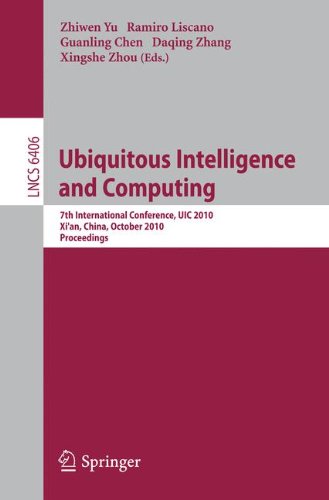

Most ebook files are in PDF format, so you can easily read them using various software such as Foxit Reader or directly on the Google Chrome browser.
Some ebook files are released by publishers in other formats such as .awz, .mobi, .epub, .fb2, etc. You may need to install specific software to read these formats on mobile/PC, such as Calibre.
Please read the tutorial at this link: https://ebookbell.com/faq
We offer FREE conversion to the popular formats you request; however, this may take some time. Therefore, right after payment, please email us, and we will try to provide the service as quickly as possible.
For some exceptional file formats or broken links (if any), please refrain from opening any disputes. Instead, email us first, and we will try to assist within a maximum of 6 hours.
EbookBell Team

4.8
34 reviewsUbiquitous sensors, devices, networks and information are paving the way toward a smart world in which computational intelligence is distributed throughout the physical environment to provide reliable and relevant services to people. This ubiquitous intelligence will change the computing landscape because it will enable new breeds of applications and systems to be developed, and the realm of computing possibilities will be significantly extended. By enhancing everyday objects with intelligence, many tasks and processes could be simplified, the physical spaces where people interact, like workplaces and homes, could become more efficient, safer and more enjoyable. Ubiquitous computing, or pervasive computing, uses these many “smart things” or “u-things” to create smart environments, services and applications. A smart thing can be endowed with different levels of intelligence, and may be c- text-aware, active, interactive, reactive, proactive, assistive, adaptive, automated, sentient, perceptual, cognitive, autonomic and/or thinking. Research on ubiquitous intelligence is an emerging research field covering many disciplines. A series of grand challenges exists to move from the current level of computing services to the smart world of adaptive and intelligent services. Started in 2005, the series of UIC conferences has been held in Taipei, Nagasaki, Three Gorges (China), Hong Kong, Oslo and Brisbane. The proceedings contain the papers presented at the 7th International Conference on Ubiquitous Intelligence and Computing (UIC 2010), held in Xi’an, China, October 26–29, 2010. The conference was accompanied by six vibrant workshops on a variety of research challenges within the area of ubiquitous intelligence and computing.